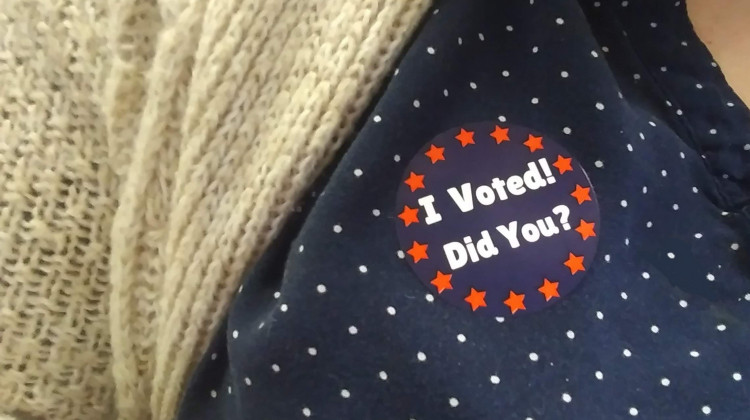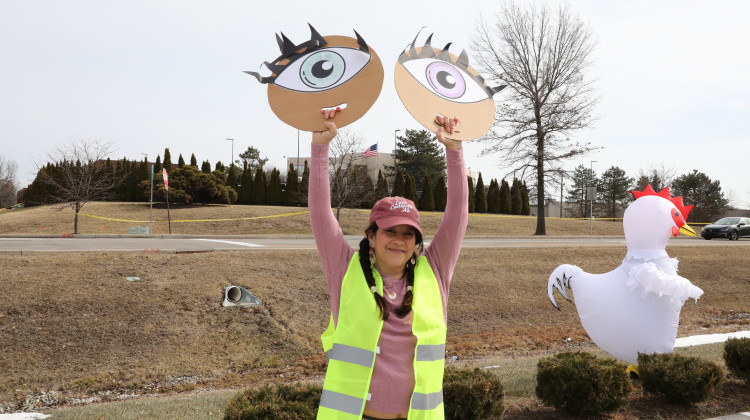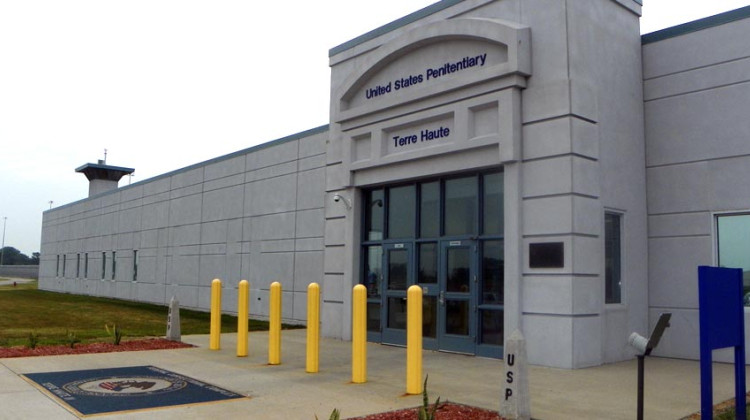Numerous Marion County Democrats oppose the party choosing its candidates in a convention, commonly refered to as slating. This year some bucked that system and won without party support. Indianapolis Star Reporter Amelia Pak-Harvey follows the issue closely and spoke with WFYI's Jill Sheridan about the drama surrounding the local slating process.
Pak-Harvey: The slating process, otherwise officially known as the pre primary convention, is the process by which the parties in Marion County, Republican and Democrat, choose which candidates to endorse for the upcoming primary election.
The party's PC people, their precinct committee, people get together in a convention and vote who to give the party's endorsement to and that's really valuable. That means party resources, party support, you've got a network of people who are lobbying for you. It's kind of a an old processes.
Sheridan: This time around. A number of candidates did win without the backing of the local Democratic Party.
Pak-Harvey: Yeah, so running against the slate as they call it is when you maybe are a Democrat or Republican and you choose not to participate in the convention and get the party's endorsement. So instead, you go head to head with the other Republican are the other Democrat in the primary. And so usually, to produce the strongest, you know, viable candidate, people will kind of bow down and just kind of step aside if there's a candidate that the party clearly wants to be on the primary ballot.
In this election cycle though. There was a large number of candidates who chose not to go through the slating process and instead just present their own name to the voters. The downside just leading to is if you participate in slating then you have to agree if you lose, and you don't get the party's endorsement, you have to agree to withdraw from the primary altogether.
A lot of these people thought you know, I don't stand a chance in slating because they felt that they were party insiders that kind of already knew who they wanted. And so they would rather have their name on the ballot and not have it at all. And they said they wanted to let the voters decide.
Sheridan: Most notably winning is Andrea Hundley, an IPS principal who won state senate seat over a council woman here.
Pak-Harvey: Yeah, Andrea was one of multiple candidates in that race who chose not to participate in this leading process. And she went up against sitting city councilor Kristen Jones, who had the party's endorsement. And so for the party to not get the slated candidate for a seat like a state senate seat, I'm told is a pretty, pretty big blow.
Sheridan: And this election follows months and months of sort of tension over the slating process and a lot of prominent state Democrats coming out with other local leaders and saying, you know, this is not right. Because it's, you know, it's discriminatory.
Pak-Harvey: Yeah. So back in February, a number of state legislators well known, black state legislators kind of came out and said, they're not going to be participating in the slating process. It's not as much of a sacrifice for them, because they're incumbents, and they didn't really have any people who were going to go up against them in the primary. They were, you know, representative, Robin Shackleford, chairish prior, a number of other people who very openly aired the party's dirty laundry and the concerns.
Sheridan: It may all be a moot point because we're hearing you know, from from other leaders now that maybe it is time to just be done with this slating process.
Pak-Harvey: Yeah, the timing on that is interesting, because back when the group of legislators came out and very publicly voiced their concerns. Some of the naysayers I guess, to that group, were arguing, well, you know, they benefited from slating, they're never actually going to want to end it. And they're just doing this as a political move to end the powers that be within the party, It's just a power struggle. Now after the primary, it's almost as if the primary voters spoke, you know, for the outcome itself. And after the primary, now, folks are more than willing to say, hey, maybe we should take a look and think about ending slating.
Sheridan: Thank you.
 DONATE
DONATE







 Support WFYI. We can't do it without you.
Support WFYI. We can't do it without you.